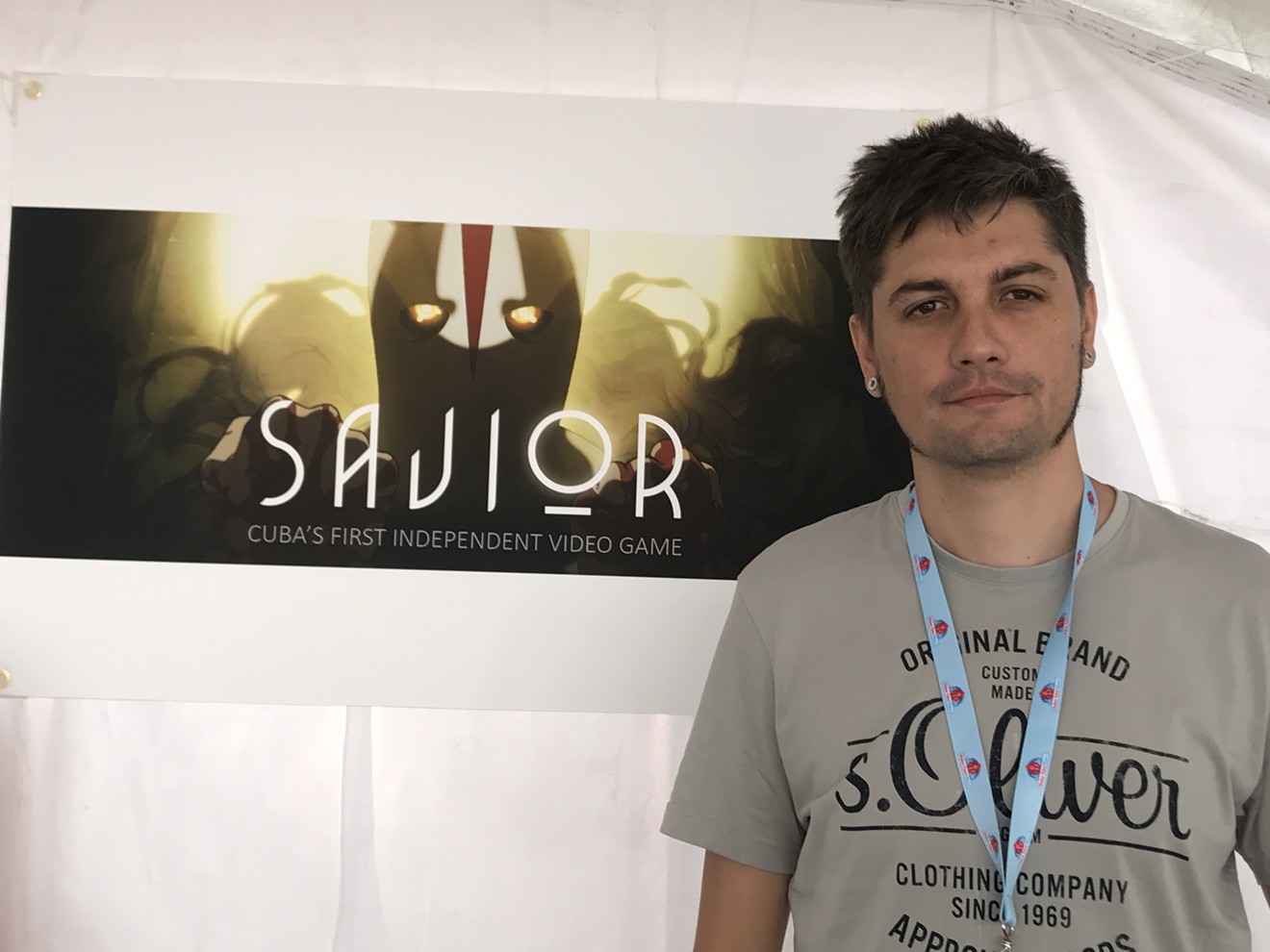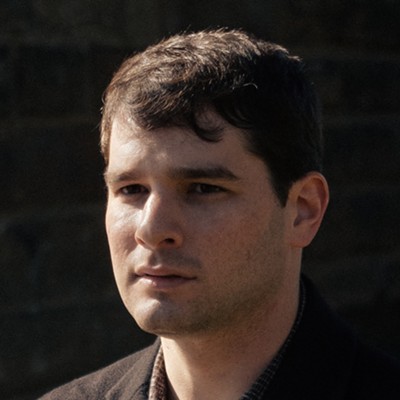At a glance, videogames are like the movies. There are constantly rebooted classics like Sonic the Hedgehog and Street Fighter, as well as blockbuster franchises such as Call of Duty and Grand Theft Auto. Then there are the independent games: thoughtful, unconventionally made experiences usually created by teams of a few people that seek to redefine videogames as art. You might have heard of Braid, Journey, or Firewatch. Now comes Savior, the first independent videogame made entirely in Cuba.
Created by the two-man team of designer Josuhe Pagliery and programmer Johann Armenteros, Savior is a 2D platformer with a mythic, postmodern tale. The player character is the Little God, who wakes to find a decaying home world and strikes out on a quest to find the Great God, the only entity with the power to restore the realm. As the Little God leaps from level to level, however, he becomes aware that he's a character in the game’s story and that his dissolving reality is nothing but fiction.
This isn’t your average arcade game, in other words. Pagliery thinks a videogame is an interesting space for exploring the ideas of heroism, existentialism, and simulacra.
“The context of a videogame is ideal for experimenting with all sorts of alternative realities and edgy subjects,” Pagliery says. “I’m also very interested in the concept of what a hero or savior is: a person romantically attached to the fate of the others, or more of a kind of egocentric figure that just uses people's ‘needs’ as a pretext for catapulting himself as a personality?”
Pagliery is in his mid-30s, but he hasn’t lost the passion he gained for videogames as a child. He cites '90s 16-bit classics such as Earthworm Jim, Final Fantasy VI, and The Legend of the Mystical Ninja as influences. But unlike others his age, his playtime came in the midst of the "Special Period," an era of economic strife in Cuba caused by the collapse of the Soviet Union.
In school, Pagliery continued to explore videogames in conceptual art. He attended the Higher Institute of Art in Havana and has presented interactive art pieces abroad as well as in festivals at home. For him, videogames and art are innately linked.
“I think the way you structure a piece of art, at least conceptually speaking, is not too different [from] the way you structure a videogame,” he says. “The biggest difference ,from my perspective, is that a piece of art could be totally hated by the audience and still be a great work, but in a videogame, all the time you have to think first, even before in your own tastes, of that final audience who will interact with your product.”
Pagliery recently presented a demo of the game at Maker Faire Miami, an event for artists, engineers, and other creators to show off their projects. He hopes to gain more support for the project after a successful crowdfunding campaign on Indiegogo.
“I am very interested, from the developer point of view, to see how people react to it,” he said before the event. “Judging from that direct feedback, I’ll make the adjustments needed for the final launch of the demo.”
He’s also interested in seeing how people at home will react to the final product. Despite normalization of relations with the United States, Cuba still contends with a widespread lack of internet access that, in Pagliery’s words, makes creating a game such as Savior “like trying to swim in the middle of the desert.” Although international publishing for Savior is still up in the air, upon its scheduled 2018 release, the designer hopes the game might be mentioned in El Paquete Semanal, a weekly digital issue discussing foreign movies, TV shows, and publications that's distributed on the underground market as a substitute for the internet.
But no matter how Pagliery intends to release the game abroad, in Cuba, it will be free for all.
“Hey," he says, "we live in a socialist country after all.”
[
{
"name": "Air - MediumRectangle - Inline Content - Mobile Display Size",
"component": "19274298",
"insertPoint": "2",
"requiredCountToDisplay": "2"
},{
"name": "Editor Picks",
"component": "17482312",
"insertPoint": "4",
"requiredCountToDisplay": "1"
},{
"name": "Inline Links",
"component": "18711090",
"insertPoint": "8th",
"startingPoint": 8,
"requiredCountToDisplay": "7",
"maxInsertions": 25
},{
"name": "Air - MediumRectangle - Combo - Inline Content",
"component": "17482310",
"insertPoint": "8th",
"startingPoint": 8,
"requiredCountToDisplay": "7",
"maxInsertions": 25
},{
"name": "Inline Links",
"component": "18711090",
"insertPoint": "8th",
"startingPoint": 12,
"requiredCountToDisplay": "11",
"maxInsertions": 25
},{
"name": "Air - Leaderboard Tower - Combo - Inline Content",
"component": "17482313",
"insertPoint": "8th",
"startingPoint": 12,
"requiredCountToDisplay": "11",
"maxInsertions": 25
}
]












